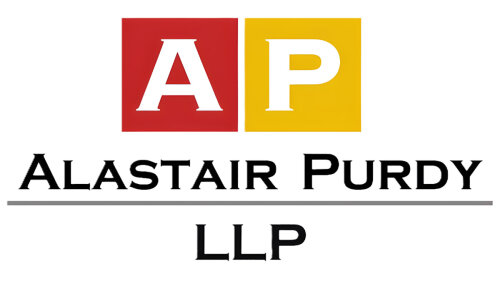Best Trusts Lawyers in Galway
Share your needs with us, get contacted by law firms.
Free. Takes 2 min.
List of the best lawyers in Galway, Ireland
About Trusts Law in Galway, Ireland
Trusts are legal arrangements that allow a person, known as the settlor, to transfer assets to a trustee, who holds them for the benefit of specified individuals or entities, the beneficiaries. In Galway, as in the rest of Ireland, trusts are used for a variety of purposes including estate planning, asset protection, and managing funds for individuals who may not be able to manage themselves, such as minors or individuals with disabilities.
The practice of trust law in Ireland is based on principles from both statutory law and equity, providing a robust framework for managing and distributing assets. Trusts can be complex, involving intricate legal documentation and processes, which is why legal advice is often recommended to ensure compliance with local laws and to effectively meet the goals of the settlor.
Why You May Need a Lawyer
There are several situations where you might require legal assistance concerning trusts in Galway:
- **Creation and Setup:** Establishing a trust involves drafting legal documents that accurately reflect the intentions of the settlor and comply with legal requirements. Legal expertise ensures the trust is valid under Irish law.
- **Administration and Management:** Trustees have specific duties and responsibilities that must be adhered to in managing the trust’s assets. A lawyer can guide trustees on complying with these duties.
- **Disputes:** Conflicts may arise between trustees and beneficiaries or among beneficiaries themselves. Legal intervention can help resolve these disputes effectively.
- **Tax Implications:** Trusts can have significant tax implications. A lawyer can provide advice to minimize tax liabilities and ensure compliance with tax laws.
- **Changing Circumstances:** If your personal circumstances or wishes change, you may need legal help to amend or terminate a trust.
Local Laws Overview
Trust law in Ireland, including Galway, is governed by a combination of statutory law and equitable principles. Key legislative instruments include the Trustee Act 1893, the Conveyancing Act 1881, and the Charities Act 2009. The law dictates the powers and duties of trustees, the rights of beneficiaries, and the types of trusts that can be created. Galway, while adhering to national legislation, may see individual case law developments that affect trust interpretation and enforcement locally.
The complexities of the legal language and procedural formalities make it integral to seek professional legal advice to navigate these laws effectively. Local courts also play a role in adjudicating disputes and interpreting trust instruments in Galway.
Frequently Asked Questions
What is the role of a trustee in a trust?
A trustee is responsible for managing the trust's assets in accordance with the trust deed and for the benefit of the beneficiaries. This involves prudent investment, accounting, and distribution of trust assets.
Can I be both a trustee and a beneficiary?
Yes, it is possible to be both a trustee and a beneficiary, although the trust deed must be carefully structured to prevent conflicts of interest and ensure the trust's legality.
How are trusts taxed in Ireland?
Trusts are subject to various taxation rules, including income tax, capital gains tax, and inheritance tax. The tax treatment can depend on the type of trust and the residence status of the settlor, trustees, and beneficiaries.
What is an irrevocable trust?
An irrevocable trust is one that, once established, cannot be modified or terminated by the settlor without the consent of the beneficiaries. This provides asset protection and potential tax advantages.
What is a discretionary trust?
In a discretionary trust, trustees have the power to determine which beneficiaries receive income or capital from the trust and in what amounts. This type of trust provides flexibility in managing distributions according to changing circumstances.
How can a trust protect my assets?
Trusts can protect assets from creditors, divorce settlements, or mismanagement by providing a legal structure where the trustee manages the assets according to the settlor’s wishes, and not directly by the beneficiaries.
What happens if a trust's terms are violated?
If the terms of a trust are violated, legal action can be taken. Beneficiaries may seek court intervention to compel trustees to adhere to the terms or to replace them if they are not fulfilling their duties.
Can a trust be used to avoid probate?
By transferring assets into a trust, a settlor can help beneficiaries avoid probate, as the trust itself continues to hold the assets and provide for distribution after the settlor's death, bypassing the probate process.
Are there any restrictions on who can be a beneficiary?
Generally, any person or legal entity can be a beneficiary of a trust. However, specific legal restrictions may apply depending on the trust's purpose and provisions.
How do I amend a trust?
Amending a trust typically requires the consent of the trustees and, in some cases, the beneficiaries. Legal advice is crucial to ensure that amendments are valid and do not contravene the original intentions of the trust.
Additional Resources
- **Law Society of Ireland:** Provides comprehensive resources and information related to setting up and managing trusts.
- **Citizens Information Service:** Offers guidance on trusts and probate issues, including contact details for local offices in Galway.
- **Irish Tax and Customs (Revenue):** Offers advice on the taxation implications of trusts in Ireland.
- **Galway Bar Association:** Local legal practitioners who can provide specific advice and guidance on trust-related matters.
Next Steps
If you require legal assistance regarding trusts, consider the following steps:
- **Consult a Solicitor:** Reach out to a solicitor specializing in trust law to discuss your specific needs and circumstances.
- **Gather Relevant Documentation:** Collect any documents related to the trust or assets you wish to include in a trust to facilitate a comprehensive consultation.
- **Understand Your Goals:** Clearly define your objectives for creating or modifying a trust, which will help your solicitor provide tailored advice.
- **Evaluate Legal Advice:** Once you have legal guidance, assess the advice given and decide on the best course of action that aligns with your goals and legal obligations.
Having professional legal support can ensure that your trust arrangements are legally sound and effective in achieving your objectives.
Lawzana helps you find the best lawyers and law firms in Galway through a curated and pre-screened list of qualified legal professionals. Our platform offers rankings and detailed profiles of attorneys and law firms, allowing you to compare based on practice areas, including Trusts, experience, and client feedback.
Each profile includes a description of the firm's areas of practice, client reviews, team members and partners, year of establishment, spoken languages, office locations, contact information, social media presence, and any published articles or resources. Most firms on our platform speak English and are experienced in both local and international legal matters.
Get a quote from top-rated law firms in Galway, Ireland — quickly, securely, and without unnecessary hassle.
Disclaimer:
The information provided on this page is for general informational purposes only and does not constitute legal advice. While we strive to ensure the accuracy and relevance of the content, legal information may change over time, and interpretations of the law can vary. You should always consult with a qualified legal professional for advice specific to your situation.
We disclaim all liability for actions taken or not taken based on the content of this page. If you believe any information is incorrect or outdated, please contact us, and we will review and update it where appropriate.










